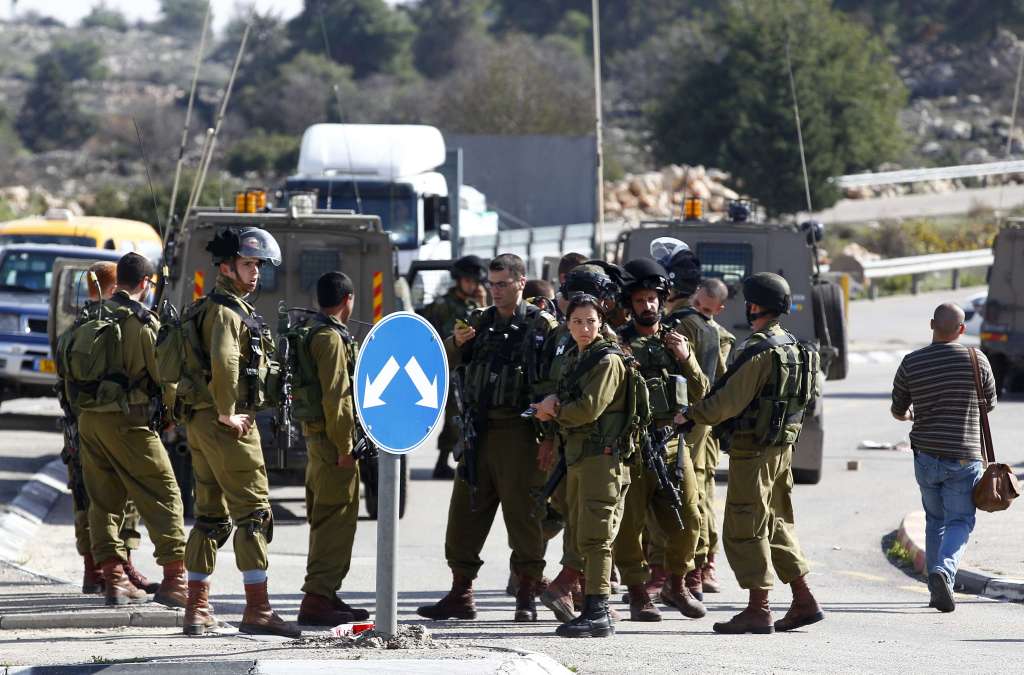
Israeli soldiers stand at the scene of a stabbing attack near the West Bank Jewish settlement of Efrat, part of the Gush Etzion bloc, December 1, 2014. REUTERS/Ronen Zvulun
Reuters-
Israeli security forces on Tuesday shot and killed a Palestinian who stabbed an Israeli soldier, lightly wounding him before troops in the West Bank, the Israeli military said.
“An assailant stabbed a soldier at the Gush Etzion junction,” a statement said.
The Palestinian health ministry named the attacker as Ahmed Kawazbeh, 18, from Sair, a village northeast of Hebron.
“Forces at the scene responded to the attack and shot the assailant, resulting in his death. The victim is receiving emergency medical treatment.”
A spokesman for Israel’s Magen David Adom emergency medical service said a 34-year-old man was taken to hospital with stab wounds to his face and hand.
The stabbing raised new fears after the last Palestinian uprising subsided. Almost daily stabbings, car-rammings and shooting attacks by Palestinians have killed 21 Israelis and a U.S. citizen since the start of October.
On the other hand, Israeli forces or armed civilians have taken the life of at least 133 Palestinians in the same period, 83 of whom authorities described as assailants. Most of the others have been killed in clashes with security forces.
The four-months-old surge in violence has been fueled by Palestinians’ frustration over Israel’s 48-year occupation of land they seek for an independent state, and the expansion of settlements in those territories which were captured by Israel in the 1967 Middle East war.
Palestinian leaders say a younger generation sees no hope for the future living under Israeli security restrictions and with a stifled economy. The latest round of U.S.-brokered peace talks collapsed in April 2014.
Behind the Muslim anger and violence also lies the over stepped-up Israeli visits to Jerusalem’s al Aqsa mosque complex, Islam’s holiest site, outside Saudi Arabia, including by ultranationalist politicians.
